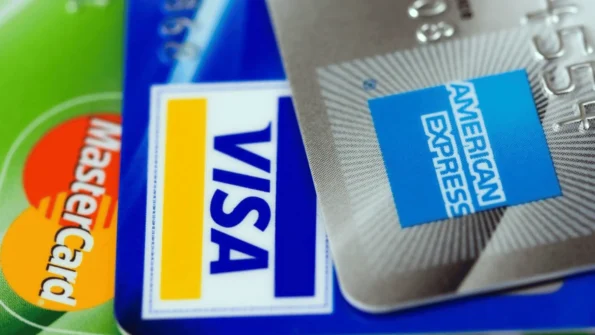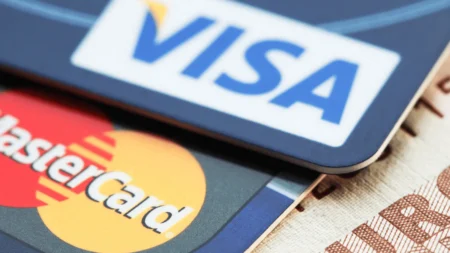Taking your first steps to apply for a credit card in Canada can feel a little daunting. The application process can feel intimidating, there are a lot of buzz words like credit checks, and they want an awful lot of personal information.
Even if you have applied for a credit card before it can all feel a little overwhelming.
What is the right credit card for me? Should I be looking for a low-interest rate card, a balance transfer card, some other rewards type of card? What will I even qualify for?
We will break all of these questions down and take you through a step by step of how to apply for a credit card in Canada.
Let’s dive in…
What is a credit card?
First, let’s make sure we understand what a credit card is. A credit card is basically a payment card that gives you access to a pre-approved amount of money that a lender is willing to advance to you.
Your credit limit is the amount of money you can spend on your credit card, which is essentially a loan that you will have to pay back over time.
What are your credit needs and wants?
Before applying for a credit card it is important to understand exactly what your credit needs and want are so you can be sure you are choosing the right credit card for you.
Revolvers
This is a term that is used in the credit card industry as someone who carries their credit spend over to the next month, paying off smaller amounts rather than the full amount.
So if you are intending on making a large purchase and then paying it off in smaller chunks over time each month, then you would be a revolver.
In this case, you will want to be looking for credit cards with the lowest interest rates so that the amount of interest you pay each month will be as low as possible.
If you already have a credit card that you are using for this very purpose then you may also want to look at low balance transfer rate credit cards too. There are many cards that offer 0% interest on balance transfers, meaning you can pay off the balance for a fixed period of time at 0%. This is a great way of reducing the overall amount you will have to pay.
Credit builder
If you are brand new to the world of credit cards, or have had some trouble with credit cards in the past and have had your credit rating impacted then you may want to look for a credit building credit card.
Your credit history and rating are very important, and building it takes time. Credit builder cards are ideal for doing just that.
They tend to come with a higher interest rate as they are taking more of a risk on someone with a lower credit rating.
If you’re intending on making purchases that you will pay off quickly then this could be a good fit.
Transactors
A transactor is the opposite of a revolver, which means they pay off their balance in full each month.
Transactors are usually looking for credit cards that offer great rewards like cashback on purchases, or travel points. Some cards also have a sign-up bonus that may be very appealing to transactors.
Paying off the full balance each month doesn’t mean that you won’t pay any fees, however. Most reward cards will come with annual fees, and if you don’t pay the full amount one month then those interest rates will also hit you.
What is your credit eligibility?
Our next step is to determine your eligibility for a credit card, or what cards specifically you will be eligible for.
There is no point in applying for a credit card you are not eligible for. In fact, it is actively a bad idea to do that as any rejected credit card application will have a negative effect on your credit score.
There are a number of ways to check your credit score, one of the simplest being a free check from Borrowell.
Understanding the factors that affect not only your credit score but also your eligibility for a credit card is important, so let’s go over the main factors that influence this.
Income – Your income is a big determinant of how much credit you can get. For reward cards, it’s also a key eligibility factor, and many will state a minimum wage requirement to apply.
It is important to not take out credit that is out with your means. The credit card companies tend to decide for you as to whether you can afford their card or not, but knowing your own limits is important too.
Age – You must be a minimum of either 18 or 19 years old depending on what province you live in to apply for a credit card.
Residential Status – You must be a resident in Canada to apply for a credit card too.
Comparing your options – What are you looking for?
Once you have an idea of your eligibility and the kind of credit card user you are likely to be, it’s time to start looking at the options and choosing which card to apply for. As we’ve mentioned, there are plenty of options and categories of the card, low interest, balance transfer, credit building, etc.
Let’s have a look at these in more detail.
Low-interest rates – low-interest rate cards are ideal for revolvers as you will be paying less each more for having your credit balance roll over.
Being able to qualify for low interest rates depends heavily on your income and your credit rating. It’s not uncommon for those with a lower credit score to apply based on one interest rate, only to be presented with a higher one in the offer.
Be careful with this as an application for a credit card will have an impact on your credit score.
Balance transfers – balance transfer cards are ones that offer low to no interest on balances that you transfer from other credit cards. They are incentives designed to draw your credit to them and away from their competitors.
This can be incredibly useful if you have a balance with a credit card that you are slowly paying off but paying interest on, as you can then move that balance to a lower or no interest card and pay less overall.
Travel rewards – for transactors that like to travel there are some great credit card options that offer travel points like Airmiles and hotel points with many of the biggest reward providers.
These cards are great if you like to spend on your card and then pay the balance back each month. The rewards are usually based on a minimum spend each month, so it is worth making sure that you will be able to meet that spend in order to really take advantage of the rewards.
Lifestyle rewards – If travel rewards aren’t what you are looking for there are also lifestyle reward cards that offer cashback on purchases, or special perks at different retailers.
Credit building – as we’ve also discussed, there are also credit card options that are specifically designed to help those with poor or no credit history to rebuild their credit score. These are great to start off with as they help you build toward qualifying for one of the credit cards with the perks above.
Apply online
Your next step is to actually make the application.
This is usually a fairly simple process and can be done online.
Different credit card companies require different information, but in general, they will want to know about you, where you live, your occupation and income, social security number, etc.
Filling in the application will usually take up to about 30 minutes, and it’s a good idea to have all of your information on hand because most applications will time out after a certain amount of time. So, if you spend twenty minutes looking for an old address you may need to start the whole process again.
The decision process is usually very quick, and you will be approved or declined in a few minutes. In some circumstances, they may take a couple of days and may ask for some more information.
What if you are declined?
If you get declined, then it’s not the end of the world. Yes, it will be a mark against your credit score, but it won’t necessarily stop you from being approved by another card.
Instead, maybe have a look at your criteria again and have another look for other cards that may suit you better.







